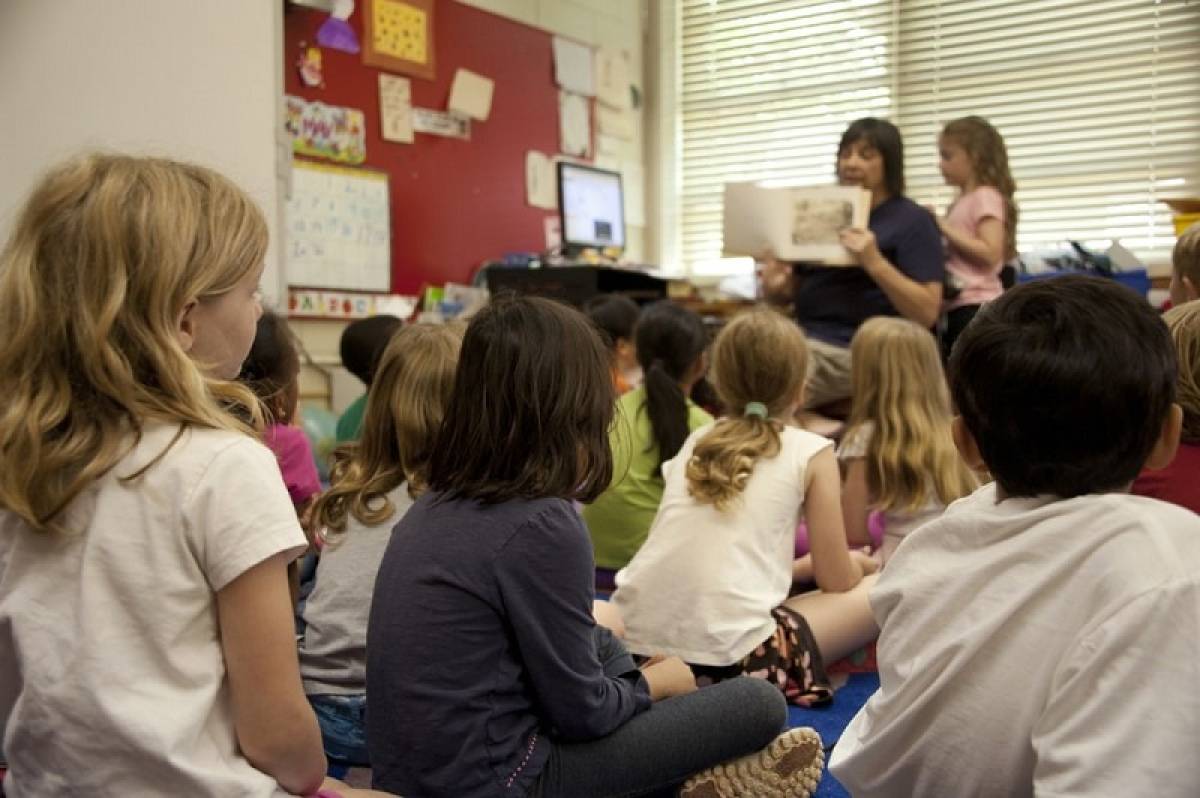5 Ways Teachers Can Improve Their Classroom Management

Captured in a metropolitan Atlanta, Georgia primary school, this photograph depicts a typical classroom scene, where an audience of school children were seated on the floor before a teacher at the front of the room, who was reading an illustrated storybook, during one of the scheduled classroom sessions. One of the female students was assisting the teacher, while the rest of the class listened attentively to the instructor’s narrative. Photo: CDC.
Regardless of the grade you teach, it is not easy to manage a classroom full of kids. One of the biggest challenges an educator faces is simply managing the classroom.
The good news, however, is that there are some proactive steps you can take to ensure your classroom management experience is as seamless and meaningful as possible.
Here are ways teachers can improve their classroom management and be more successful.
1. Develop Positive Relationships With Students

The cornerstone of all classroom management is the relationship you have with your students. You might remember the special relationships you had with your childhood educators that may have inspired you to enter this field.
If your students have a positive relationship with you, you will see the fruits of this labor in how you are able to keep a handle on your classroom.
You can cultivate these relationships by taking the time to really get to know your students. Learn about their likes and dislikes, what kind of family background they come from, and what motivates them to do well in the classroom.
When the student feels a connection with you, they will be more likely to want to please you and practice good listening skills.
2. Prepare Lessons in Advance
There is no substitute for adequate preparation. The last thing you want is to walk into the classroom each morning without your lesson prepared. This will only serve to send you scrambling to prepare, causing you to become distracted and unable to manage the classroom.
Kids are very perceptive and will sense you are not ready to engage them in learning. However, once you get a system down, it will become easier for you to prepare your lessons in advance.
Veteran teachers are an invaluable resource when it comes to looking for tips in lesson planning. Finding a mentor at your school can go a long way in helping you to find a system of preparation that works for you and your classroom.
3. Enroll in Continuing Education
Even the most experienced teachers will benefit from some form of continuing education.
It is always important to learn new teaching methods and hone new skills to push you out of your comfort zone and inspire you to get creative in how you manage your classroom.
Enrolling in a teacher development program is a great way to build your skills so that you can practice better classroom management.
For example, an online class is a great way to continue your teacher development and immerse yourself in the latest research, while also exploring new ways to boost your performance in the classroom.
4. Share Your Plan With Your Students
Studies have demonstrated that students learn best when they know what is expected of them and in the classroom.
As a teacher, you can do your part to explain and manage classroom expectations by being clear about daily classroom plans and schedules. Providing a routine students can count on will ensure they know what is expected of them for success.
Students should not think you are simply winging it. Instead, you want to convey that you are dialed in and expect them to be so as well. This means presenting them with a schedule and a set of expectations they can count on.
Once students know the expectations, you will earn their respect and they will be more likely to behave in the classroom.
5. Stay Positive

When it comes to teaching, attitude is everything. Teachers who provide consistently positive feedback enjoy a calmer and happier classroom.
Students who are nurtured in a loving and positive school environment will naturally attune themselves to their teacher's attitude. Providing positive feedback will help to cultivate an aura of calm and organization in the classroom.
Bored students are also more prone to misbehaving in class. By keeping them entertained and engaged, you will naturally see fewer disciplinary issues. This is important when your goal is to keep the class under control.
Not only will you feel more successful teaching, but your students will also thrive if you implement and are consistent with all of the tips and approaches listed here for managing a classroom setting.



![9 Tips for Managing Your Online Writing Projects Efficiently [node:titile]](/sites/default/files/styles/thumbnail_rectangle/public/open-book-laptop-online-writing-tips.jpeg?itok=iq4PIT7b)


















